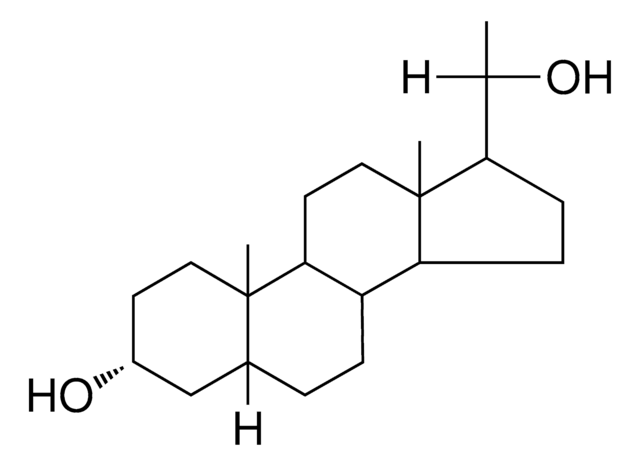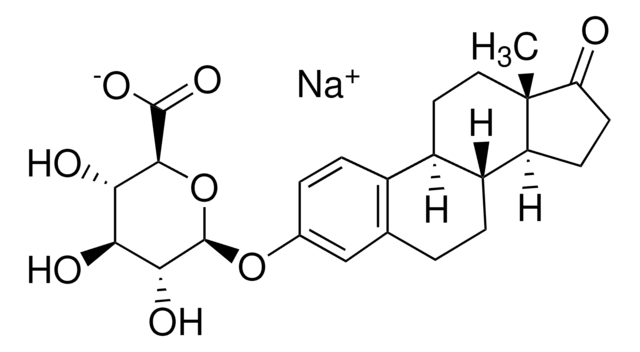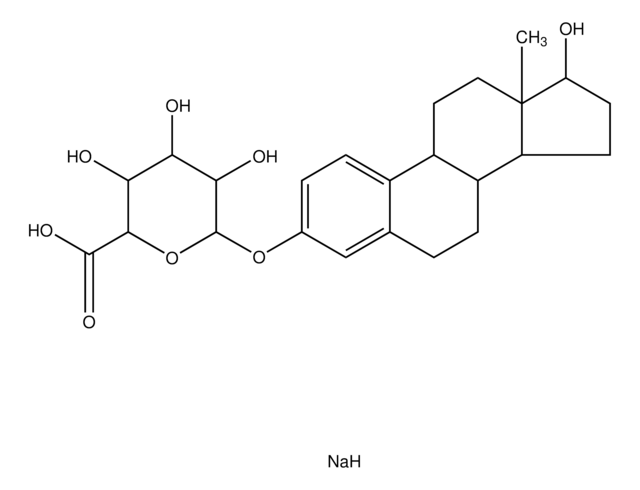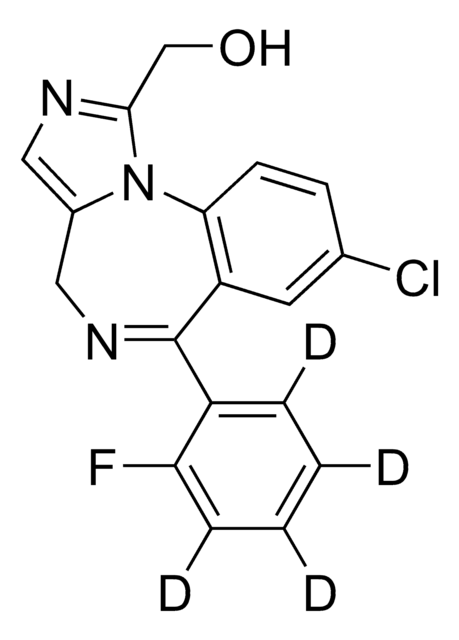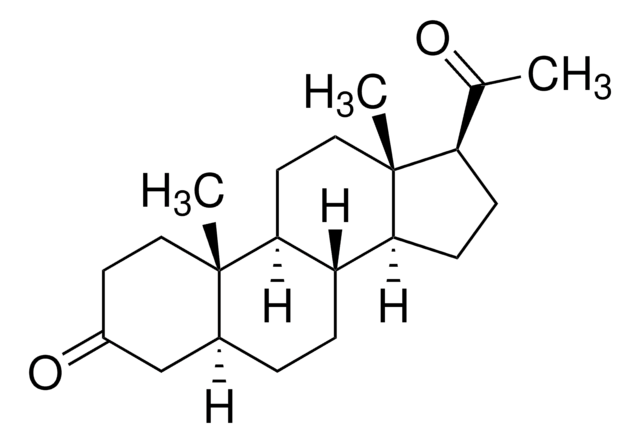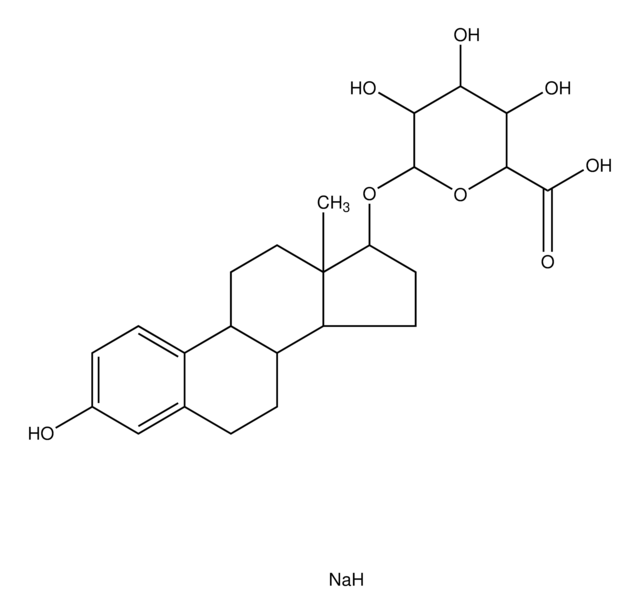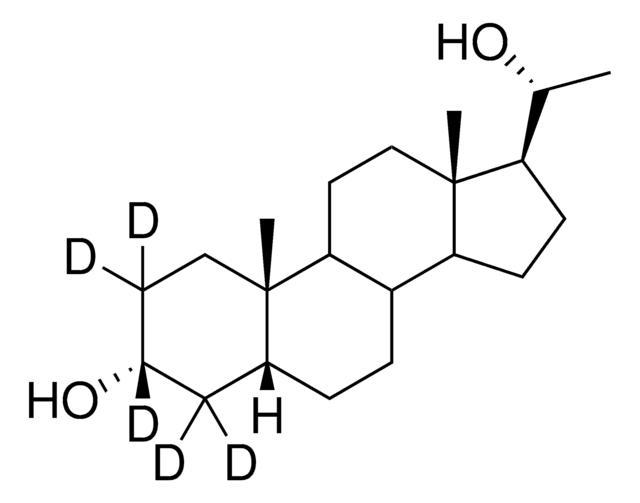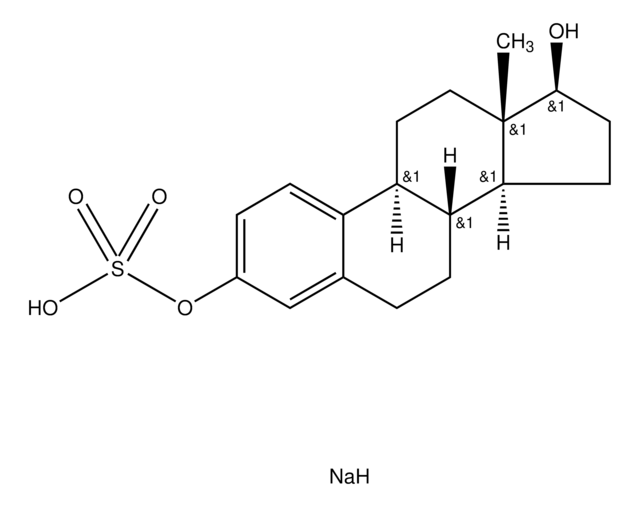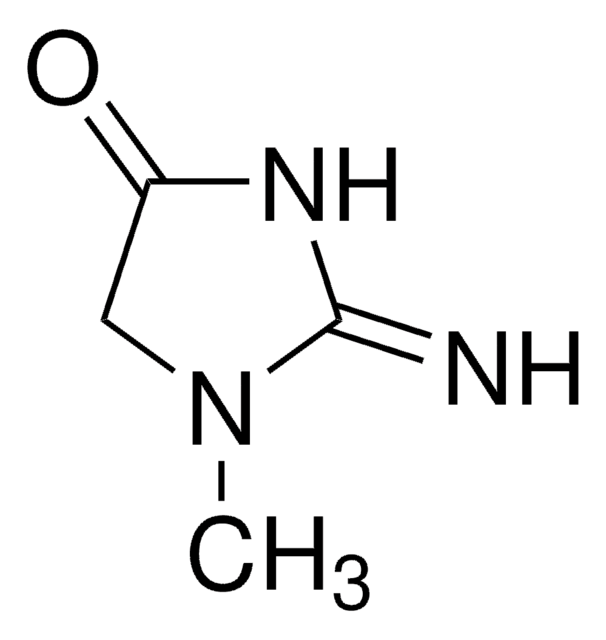P3635
5β-Pregnane-3α,20α-diol glucuronide
Synonym(s):
P3G, PDG, Pn3-G, Pregnanediol-3a-glucuronide, Pregnanediol-glucuronide, 3α,20α-Dihydroxy-5β-pregnane 3-glucuronide
About This Item
Recommended Products
sterility
non-sterile
Assay
≥98.00% (TLC)
form
powder
technique(s)
enzyme immunoassay: suitable
solubility
ethanol: 20 mg/mL, clear, colorless
shipped in
ambient
storage temp.
−20°C
SMILES string
CC(O)C1CCC2C3CCC4CC(CCC4(C)C3CCC12C)OC5OC(C(O)C(O)C5O)C(O)=O
InChI
1S/C27H44O8/c1-13(28)17-6-7-18-16-5-4-14-12-15(8-10-26(14,2)19(16)9-11-27(17,18)3)34-25-22(31)20(29)21(30)23(35-25)24(32)33/h13-23,25,28-31H,4-12H2,1-3H3,(H,32,33)
InChI key
ZFFFJLDTCLJDHL-UHFFFAOYSA-N
General description
Application
Storage Class Code
11 - Combustible Solids
WGK
WGK 3
Flash Point(F)
Not applicable
Flash Point(C)
Not applicable
Personal Protective Equipment
Certificates of Analysis (COA)
Search for Certificates of Analysis (COA) by entering the products Lot/Batch Number. Lot and Batch Numbers can be found on a product’s label following the words ‘Lot’ or ‘Batch’.
Already Own This Product?
Find documentation for the products that you have recently purchased in the Document Library.
Customers Also Viewed
Our team of scientists has experience in all areas of research including Life Science, Material Science, Chemical Synthesis, Chromatography, Analytical and many others.
Contact Technical Service